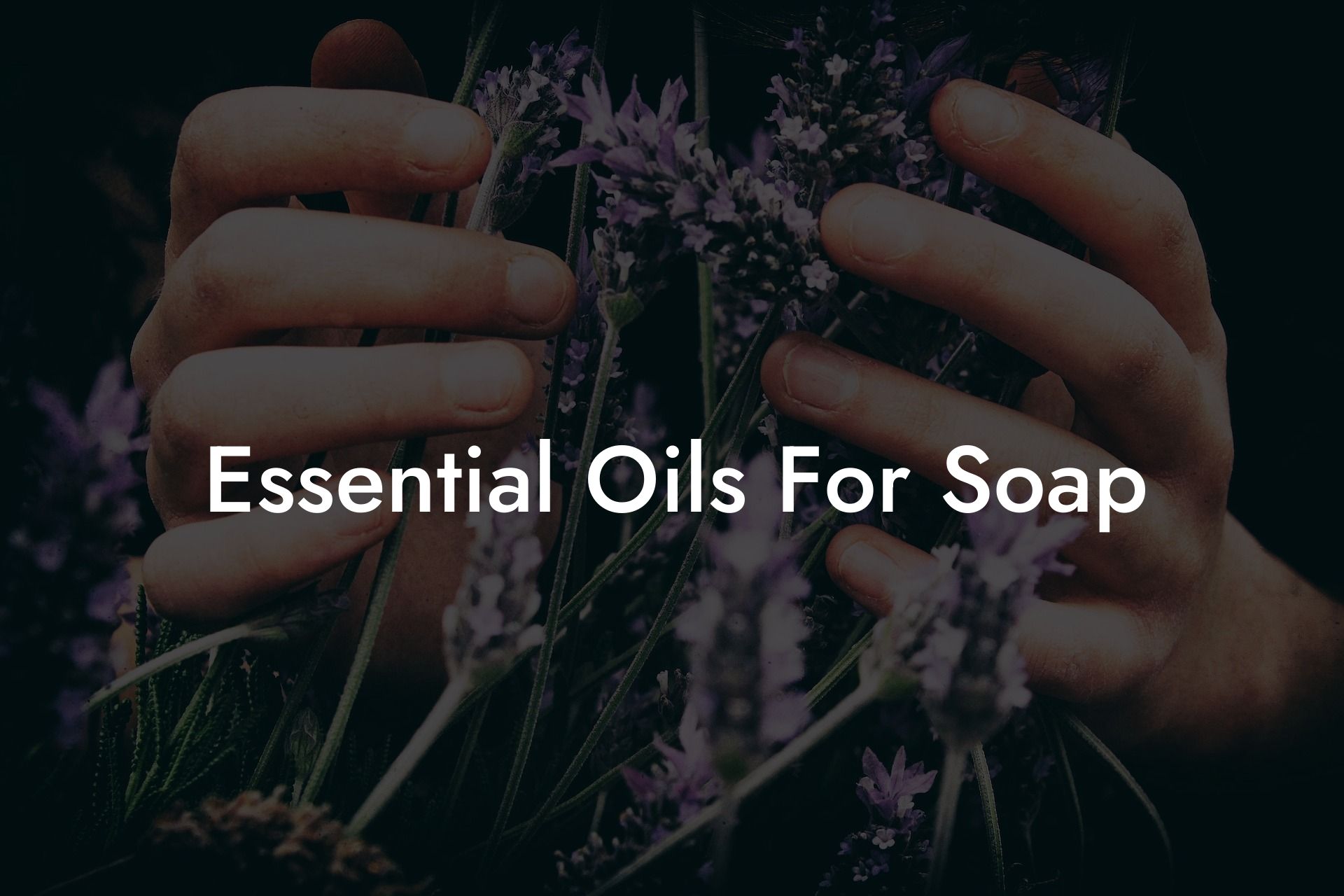In the world of natural and handmade soaps, essential oils play a significant role in enhancing the benefits and sensory experience for users. With the increasing interest in self-care and wellbeing, essential oils have emerged as a hot topic for enthusiasts seeking that perfect blend of aroma and rejuvenation. In this comprehensive guide, we will discuss various essential oils for soap making, their unique properties, and benefits for a luxurious and personalized soap experience.
Table of Contents
Choosing the Right Essential Oils for Soap Making
Essential oils provide aroma, therapeutic properties, and personality to your handmade soaps. Selecting the right essential oils for soap making begins with understanding the unique characteristics and benefits that each oil brings to the table. Here are some key factors to consider when selecting essential oils for your soap recipes:
Characteristics of Essential Oils
- Aroma: Your chosen essential oils should have a pleasant and harmonious scent when blended.
- Intensity: Some oils have a strong scent and may overpower other fragrances. Always experiment and test scents in small quantities before adding them to your soap recipes.
- Volatility: Some essential oils tend to dissipate quickly and may not be suitable for soap making. Choose oils that are less volatile and have a persistent aroma.
Therapeutic Properties
The oils you use should have beneficial properties for the skin, as well as the desired aromatherapeutic effects. Some common properties in essential oils used for soap making include:
- Antimicrobial: Oils like tea tree, lavender, and eucalyptus possess antimicrobial properties that can help keep your skin clean and healthy.
- Anti-inflammatory: Essential oils such as chamomile and lavender can reduce inflammation and soothe irritated skin.
- Astringent: Oils like lemon and witch hazel can help tighten pores and improve skin texture.
- Emollient: Oils such as sweet almond and jojoba can help moisturize and soften the skin.
Popular Essential Oils for Soap Making
Now that you understand the characteristics and therapeutic properties to look for in essential oils let’s explore some popular choices for soap making:
- Lavender: Known for its calming and soothing properties, lavender essential oil is a top favorite in soap making for its versatile scent and skin-friendly benefits.
- Tea Tree: Highly regarded for its antimicrobial and medicinal properties, tea tree essential oil helps to purify and cleanse the skin.
- Peppermint: With its refreshing and invigorating scent, peppermint essential oil adds a cooling sensation to soaps and helps stimulate the senses.
- Rosemary: Both stimulating and refreshing, rosemary essential oil provides clarity and is often used in soaps designed for morning or pre-workout use.
- Lemon: Known for its uplifting and energizing aroma, lemon essential oil adds a bright and fresh scent to soaps while also providing astringent properties for improved skin texture.
Essential Oils For Soap Example:
Handmade Lavender Soap Recipe:
This simple lavender soap recipe brings together the calming properties of lavender essential oil, along with skin-nourishing ingredients, for a rejuvenating and soothing soap experience.
Ingredients:
- 8 oz. coconut oil
- 8 oz. olive oil
- 4 oz. cocoa butter
- 4 oz. castor oil
- 10 oz. distilled water
- 4 oz. lye (sodium hydroxide)
- 2 oz. lavender essential oil
- Optional: crushed dried lavender buds for texture and visual appeal
Instructions:
- Prepare your work area, with safety gear and all ingredients ready.
- Combine the lye with the distilled water, stirring until dissolved. Set aside to cool.
- Melt the coconut oil, olive oil, cocoa butter, and castor oil together until fully melted and combined.
- Once the lye solution and oils reach a temperature between 100-120°F, slowly pour the lye solution into the oils, while stirring.
- Use a stick blender to mix until trace is reached (the mixture is the consistency of a light pudding).
- Add the lavender essential oil and crushed lavender buds, if desired, and blend well.
- Pour the soap mixture into a soap mold and cover lightly. Allow the soap to set for 24-48 hours.
- Unmold, and cut the soap into bars. Set bars aside to cure for 4-6 weeks before using.
The world of essential oils for soap making is vast and rich, offering countless options to personalize your handmade soaps to suit your desired aroma and therapeutic benefits. By understanding the characteristics and properties of essential oils, you can craft unique, enjoyable, and skin-loving soap creations. We invite you to explore other essential oil guides on Oshu Oils and browse our range of artisan essential earth oils to elevate your soap-making experience. Don’t forget to share this article with fellow soap enthusiasts, and let us know your favorite essential oil soap recipes in the comments!





















